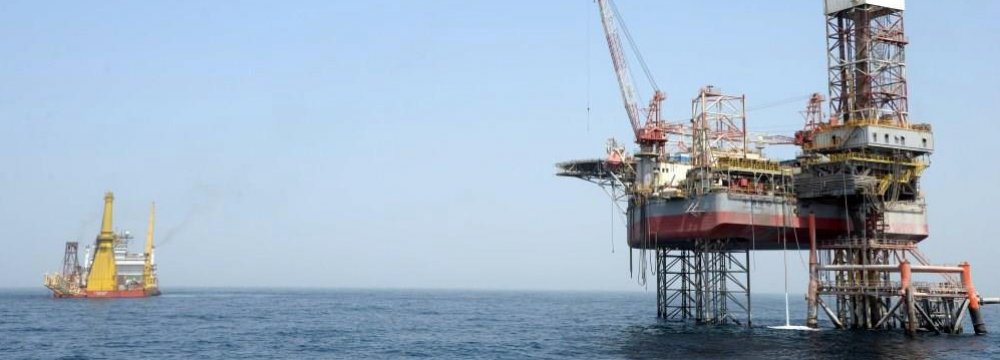
Iran Has No Plan to Increase Oil Production in Next 12 Months

“The country’s oil production will not rise in the year to come and it will be fixed at the current rate,” Ali Kardor was also quoted as saying by ISNA.
On the current volume of oil output, Kardor noted that while Iran’s daily production capacity stands at nearly 4 million barrels, the actual output stands at around 3.9 million bpd.
According to Kardor, the oil-rich country’s crude export is at a daily average of 1.7 million barrels, excluding condensates, a type of ultra-light crude.
Oil Minister Bijan Namdar Zanganeh said last month that the country's oil output has increased by 165,000 barrels per day in the last 10 months compared with the corresponding period of last year.
"Crude exports have risen by 60,000 bpd in this period," Zanganeh was quoted as saying by IRNA.
According to the oil minister, the country shipped around 777 million barrels of crude oil and 180 million barrels of condensate last year, averaging 2.62 million bpd.
He noted that since the termination of anti-Iran economic sanctions in January 2016, not only has the country's crude production surged by 1 million per day, but its exports have also surged by 1.5 mbpd.
During the international sanctions regime, Iran's oil output and exports stood at 2.5 and 1 million per day respectively.
Iran's export of crude oil and gas condensate amounted to nearly 1 billion barrels in 2017 in a year that OPEC and other producers stepped up efforts to keep a lid on supplies and drain bloated inventories.
The reports named Turkey, Italy, Britain, Hungary and the Netherlands as some of the European clients of Iran's crude.
The sanctions removal helped Iran to resume oil sales to major customers in Europe, including Italy's Saras and Eni, Greek refiner Hellenic Petroleum, Madrid-based Repsol, Royal Dutch Shell and French energy giant Total that holds a stake in an ambitious offshore Iranian gas venture.


Trump weighs using $2 billion in CHIPS Act funding for critical minerals

Codelco cuts 2025 copper forecast after El Teniente mine collapse

Electra converts debt, launches $30M raise to jumpstart stalled cobalt refinery

Barrick’s Reko Diq in line for $410M ADB backing

Abcourt readies Sleeping Giant mill to pour first gold since 2014

Nevada army depot to serve as base for first US strategic minerals stockpile

SQM boosts lithium supply plans as prices flick higher

Viridis unveils 200Mt initial reserve for Brazil rare earth project

Tailings could meet much of US critical mineral demand – study

Kyrgyzstan kicks off underground gold mining at Kumtor

Kyrgyzstan kicks off underground gold mining at Kumtor

KoBold Metals granted lithium exploration rights in Congo

Freeport Indonesia to wrap up Gresik plant repairs by early September

Energy Fuels soars on Vulcan Elements partnership

Northern Dynasty sticks to proposal in battle to lift Pebble mine veto

Giustra-backed mining firm teams up with informal miners in Colombia

Critical Metals signs agreement to supply rare earth to US government-funded facility

China extends rare earth controls to imported material

Galan Lithium proceeds with $13M financing for Argentina project

Kyrgyzstan kicks off underground gold mining at Kumtor

Freeport Indonesia to wrap up Gresik plant repairs by early September

Energy Fuels soars on Vulcan Elements partnership

Northern Dynasty sticks to proposal in battle to lift Pebble mine veto

Giustra-backed mining firm teams up with informal miners in Colombia

Critical Metals signs agreement to supply rare earth to US government-funded facility

China extends rare earth controls to imported material

Galan Lithium proceeds with $13M financing for Argentina project

Silver price touches $39 as market weighs rate cut outlook

















